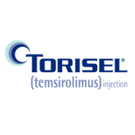Torisel Achieves Little Response In Relapsed Multiple Myeloma Patients

In a recent Phase 2 study, Torisel (temsirolimus) showed little ability to reduce blood and urine levels of abnormal monoclonal protein (known as “M” protein) in relapsed multiple myeloma patients. The results were published in the November issue of the journal Leukemia Research.
Despite recent advancement in treatment options, many myeloma patients relapse and experience disease progression. Therefore, the search continues for new alternatives to treat the disease, especially for patients where previous therapy has proved unsuccessful.
Torisel, a drug already approved for use in advanced renal cell carcinoma, shows potential for reducing the number of abnormal myeloma cells in the body by inhibiting the protein mTOR. mTOR is responsible for activating the proteins necessary for cell growth and division.
In multiple myeloma, mTOR’s activity enables myeloma cells to grow, increase in number, and resist normal cell death. By inhibiting mTOR, Torisel would prevent these cells from growing and make them more susceptible to chemotherapy. Myeloma cells produce “M” proteins, so by killing myeloma cells, Torisel would also reduce the amount of “M” protein in the blood and urine.
The study was spearheaded by Dr. Sherif Farag, Director of the Bone Marrow & Stem Cell Transplantation Program and Associate Director for Clinical Research at Indiana University Melvin and Bren Simon Cancer Center.
Sixteen multiple myeloma patients who had all relapsed after at least one treatment were recruited for the study. They received 25 milligrams of Torisel weekly by IV infusion until their disease progressed. Their blood and urine “M” protein levels were monitored every four weeks.
One of the 16 patients (6 percent) achieved partial response, which is defined by the International Myeloma Working Group as a greater than 50 percent reduction in “M” protein levels. Additionally, five patients achieved minor response, a greater than 25 percent reduction. However, four patients experienced an increase in their “M” protein levels.
“The clinical trial did show some activity, but I think the activity is not as strong as the other modern agents like Revlimid (lenalidomide) and Velcade (bortezomib),” said Dr. Farag. “However, it did provide some understanding of how much activity [Torisel] has in its dosage, side effects, and toxicity and its potential for being used in combination with other drugs.”
Because fewer than 1o percent of the study participants achieved partial or complete response, the trial was not expanded. Eventually, all patients stopped the treatment for various reasons, including disease progression and adverse side effects.
During the trial, doctors reduced the dosage of Torisel given to 11 patients (69 percent) because of adverse side effects. These included fatigue, diarrhea, lung inflammation, and reduced white blood cell and platelet counts.
Doctors concluded that the dosage and treatment regimen of Torisel used in the study proved ineffective in treating multiple myeloma.
They recommend further studies that vary how much and how often Torisel is given. They also recommend combining Torisel with drugs that target myeloma cells through pathways other than mTOR for more effective results.
For more information, please see the study in Leukemia Research (abstract).
Related Articles:
- None Found

